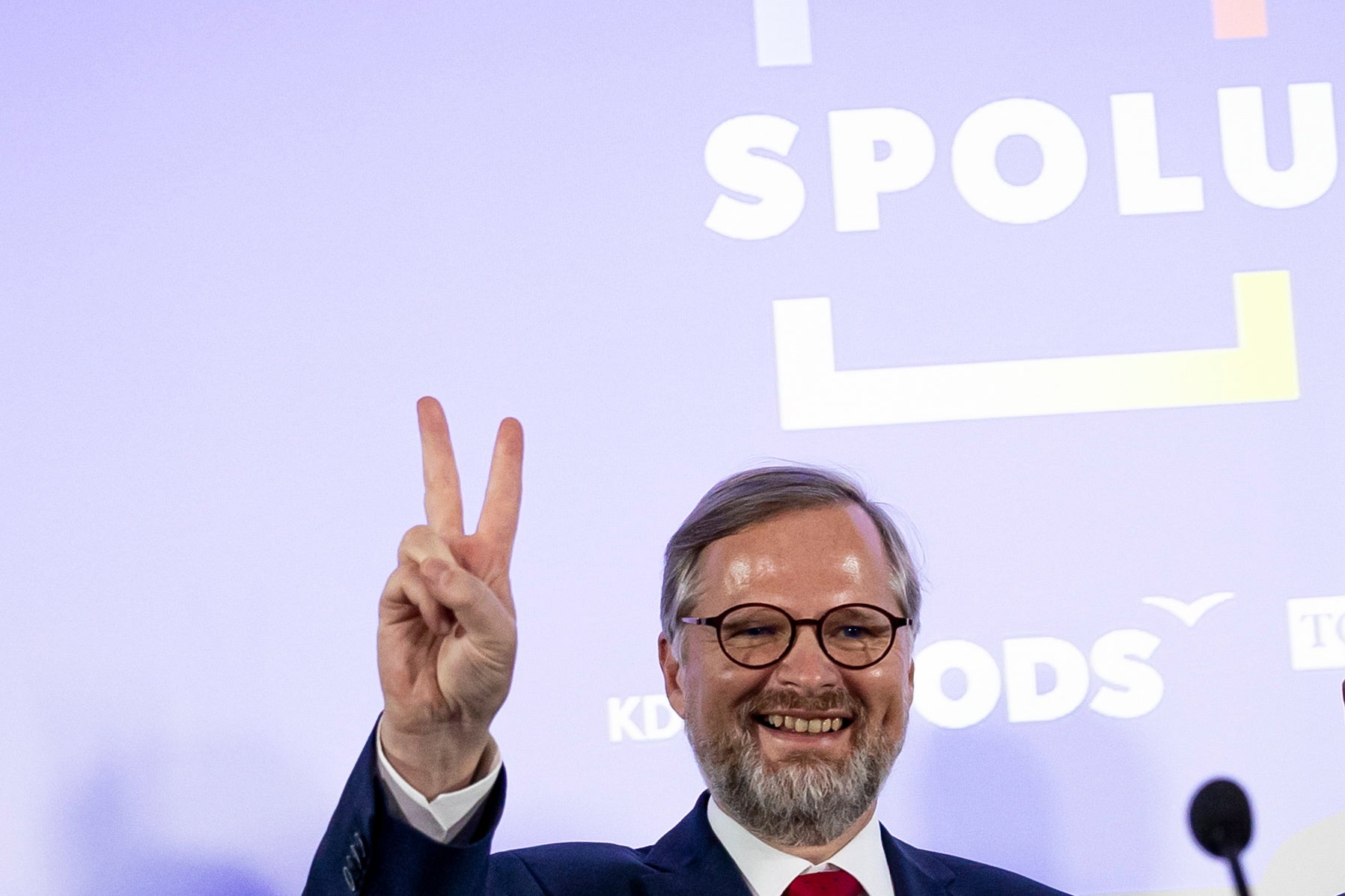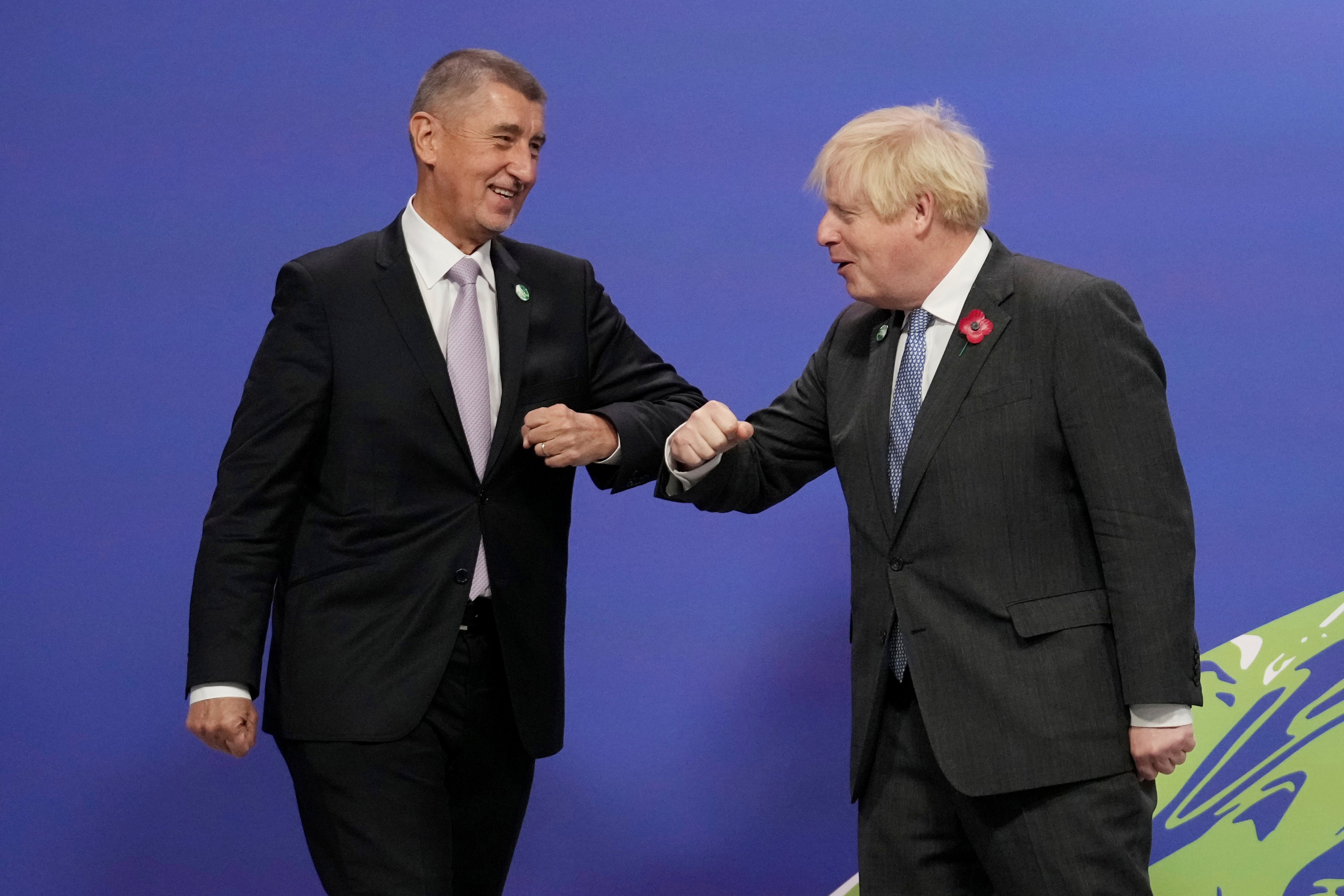Czech-mate: Parties close to deal which will lead to new government and ousting of populist Babis
An anti-populist politician Petr Fiala is poised to become the next leader in Prague after weeks of negotiations following last month’s election, reports William Nattrass

When the Czech Republic went to the polls in early October, many predicted that no matter the outcome the country’s populist Prime Minister Andrej Babiš would find a way to cling on to power.
It was predicted that Babiš would be propped up by his steadfast ally in Prague Castle, Czech President Miloš Zeman, who plays a major constitutional role in post-election negotiations.
But instead, the stars seem to have aligned for an anti-populist opposition coalition led by Petr Fiala, a man with an academic background and a realist approach to politics.
Having led political research bodies and university faculties for much of his career, Fiala is now poised to take over as Prime Minister at the head of a new five-party coalition government, which aims to realign the country with the EU.
When the opposition won its narrow majority, many predicted that President Zeman would still give the first attempt to form a minority government to Babiš. Zeman confirmed this to be his intention after the vote, but his subsequent hospitalisation took the wind out of the sails of attempts to keep the billionaire in power.
This allowed the opposition coalition to press ahead with its plans for a new era in Czech politics. And although still in hospital, Zeman has now finally committed to discussing the formation of the new government with Fiala once he leaves intensive care.
On Tuesday night, the incoming coalition presented its programme for the new regime, including the allocation of ministries to its two constituent electoral groups: Spolu, of which Fiala is the leader, and the Czech Pirate Party in coalition with a group of mayors and independents.
Significantly, both the Czech Foreign Ministry and a newly-created ministerial post for EU relations have been allocated to the strongly pro-EU Pirates and Mayors group. Following concerns about Babiš’s “Orbánisation” of the Czech Republic in recent years, this suggests the country could be about to see a major pivot back towards Brussels.
“The new minister for the EU will show to the West that the Czech Republic is taking its European role seriously,” Jiří Pehe, the director of the New York University in Prague and a former Czech cabinet member, told The Independent.
Still, Brussels won’t be celebrating just yet. A strong vein of euroscepticism runs through Fiala’s Civic Democrats, the largest party in the coalition. Indeed, the party is a member of the European Conservatives and Reformists group in the European Parliament, founded by the British Conservatives and now dominated by MEPs from Poland’s controversial Law and Justice ruling party.
Yet it appears this euroscepticism will be sacrificed for the sake of coalition cohesion. Despite confirming that the Czech Republic won’t adopt the euro in the next four years, the group announced its intention to realign the Czech Republic with western alliances such as the EU and Nato, following a drift towards Russia and China seen under Babiš and Zeman.
“It is true that four of the five parties in the new coalition can be considered strongly pro-European, but the Civic Democrats, who are the strongest party, do not hide their critical attitude towards the EU, especially in the field of environmental policy,” Šárka Prát, executive director of the Czech Institute for Politics and Society, told The Independent.
“A pro-European government is being formed in the Czech Republic, but it will be run by moderate Eurosceptics.”

Given the stark polarisation in views of the EU in Britain, the ability to reach such rational compromise may seem enviable. But it could also be symptomatic of challenges which will face the new Czech government. From the economy to social issues such as LGBT+ rights, there is plenty of room for divisions to arise between the individual parties involved.
For Pehe, the ease with which the parties have been able to reach agreement so far is largely down to their shared antipathy for Babiš, who is a bogeyman for many due to allegations of conflicts of interest and EU subsidy fraud.
“As long as Andrej Babiš is leader of the opposition, there will be a lot of political will for the coalition to stay together,” says Pehe. “This pressure would be significantly reduced if Babiš left politics.”
While the perceived threat posed by Babiš to democracy and the rule of law in the Czech Republic persists, the forces holding the new government together are likely to remain stronger than those pulling it apart. Ironically, though, success in steering the country back towards the West could result in the new coalition government losing its raison d’être, allowing its ideological differences to come to the fore.



Join our commenting forum
Join thought-provoking conversations, follow other Independent readers and see their replies
Comments